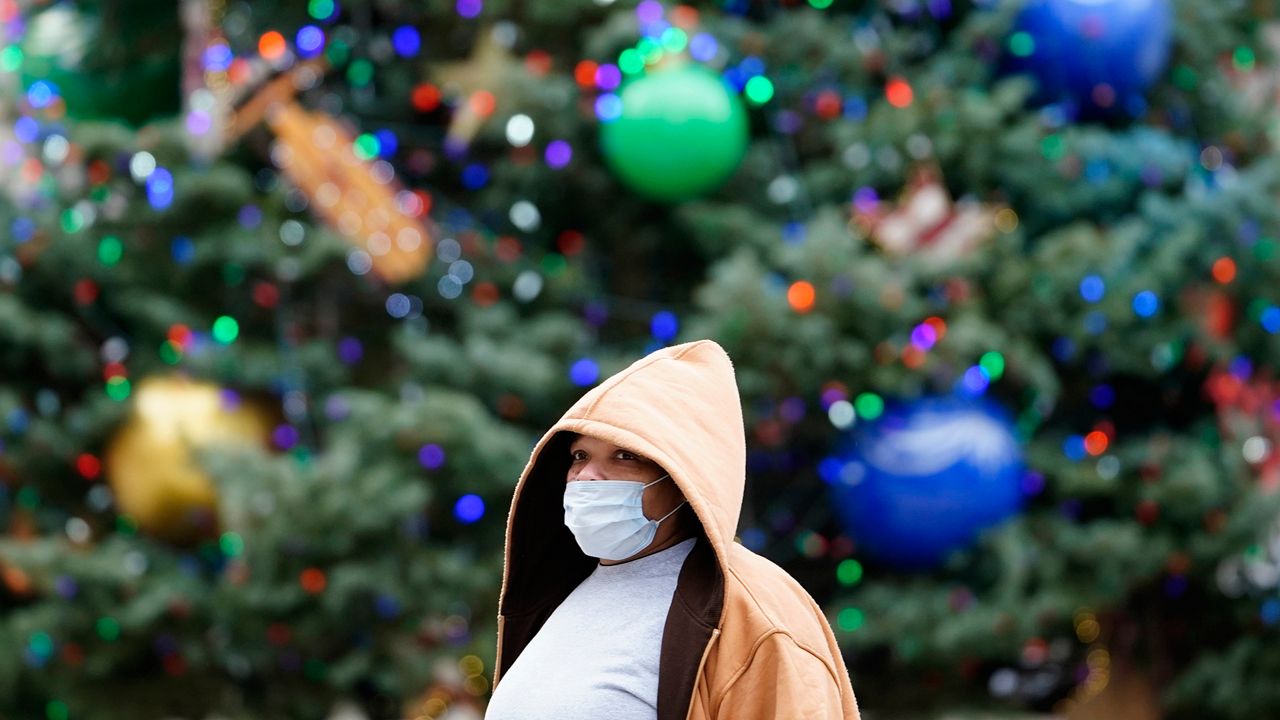LOUISVILLE, Ky. — The arrival of the first COVID-19 vaccine at hospitals around the country marks a turning point in the pandemic, but experts say day-to-day life, even for those who have received the vaccine, won’t change soon. The most visible indication of that will be that people will still need to wear masks, Dr. Susan R. Bailey, president of the American Medical Association, told Spectrum News 1.
"For the safety of the people around you. It's important to continue wearing masks, washing hands, and physical distancing after you've had the vaccine," she said. "And once the level of the virus in the community has gone way down, then public health authorities will decide when it's safe to stop masking. But for the time being, we need to keep it up.” Here's why:
Building immunity to an illness takes time. According to a document posted by the FDA, Pfizer found that vaccinated patients began to see protection from infection 10 days after their first dose.
“It takes time for a person's immune system to recognize that the material in the vaccine is foreign,” Bailey said. “It takes time for that to get processed and then for the body to develop antibodies. That doesn't happen overnight.”
For both Pfizer and Moderna, full protection doesn’t come until a patient has received a second dose either three or four weeks, depending on the vaccine, after the first. “With coronavirus vaccines, we've discovered that to get the very best immune response you do need a booster shot between 21 and 28 days after the initial injection,” Bailey said.
The CDC explains on its website that this lag means people who have been vaccinated should remain cautious: “It is possible that a person could be infected with the virus that causes COVID-19 just before or just after vaccination and then get sick because the vaccine did not have enough time to provide protection.”
The efficacy of the COVID-19 vaccines has been highly publicized in recent weeks. Both Pfizer's and Moderna’s is roughly 95 percent effective. But what does that mean?
“It's exactly like it sounds,” Bailey said. “Ninety-five times out of 100 the vaccine will take effect and you will have protection from the virus. There's only a five percent chance that it won't completely work for you. And in the vaccine world, 95 percent effective is a phenomenally high number.”
For those among the other five percent, wearing a mask will help them avoid infection.
Trials conducted on the Pfizer and Moderna vaccines monitored their effectiveness at preventing people from becoming sick with COVID-19, but they did not track whether vaccinated people were able to spread the disease.
It’s not clear then if a person who has been vaccinated can still contract and spread the coronavirus, even if they never get sick. If they can, it presents the possibility that vaccinated people who stop wearing masks could spread illness to the unvaccinated. Given the time it will take to vaccinate hundreds of millions of Americans, it’s important that those who have been vaccinated, especially early in the process, continue to wear a mask, Bailey said.
Evidence that the vaccines do in fact slow spread of the virus could be coming. In a filing ahead of an FDA meeting this week, Moderna said that it conducted nasal swabs on trial participants prior to their second dose of its vaccine. Fourteen people who received the first dose of the vaccine had evidence of asymptomatic infection compared to 38 people who received the placebo.
“There were approximately 2/3 fewer swabs that were positive in the vaccine group as compared to the placebo group,” the filing said, “suggesting that some asymptomatic infections start to be prevented after the first dose.”
Bailey said this is not a surprise — the vaccines are expected to reduce spread — but, she said, “we just don't quite have all that data in yet.”
The need to wear a mask and social distance will not go on indefinitely, Bailey said. Once the U.S. reaches herd immunity, which will happen when 70 percent of the country has immunity to COVID-19, those recommendations will go away.
“Right now, the fastest way to get past this is to get the vaccine as soon as you're eligible and in the meantime keep wearing masks washing hands and socially distancing,” she said.



